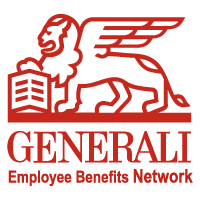How to support employees living and working with cancer
Cancer represents one of the three most common causes of group income protection claims, alongside mental health and musculoskeletal (MSK) conditions.
So, our in-house experts and vocational rehabilitation partners have lots of experience and expertise to share on what works well when it comes to supporting employees living and working with cancer.
From the first day of diagnosis, within the definition of ‘disability’ under the Equality Act 2010.
This means there is an obligation on the employer to make reasonable adjustments which needn’t be onerous or costly.
In fact, you probably already have access to everything you need already, especially if you have access to vocational rehabilitation and/or occupational health support.
Our top 5 tips
1. Identify what support is needed
Don’t make assumptions about the kind of support employees need.
For example, assuming that long-term absence and minimal, or zero, contact is the best thing for the employee.
For many cancer patients, the risk of losing touch with work and the potential for detrimental impact on their employment status or incomes – not to mention their mental health – can be very significant.
2. Keep talking
Speak to the employee as early as possible, not when they’ve been off sick for some time, according to Generali’s early intervention partner Dr Julie Denning, Chartered Health Psychologist and managing director of Working To Wellbeing and chair of the Vocational Rehabilitation Association.
If they’re taking time off for long-term treatment, ask them how much they want to remain involved, if at all.
This will look different for every organisation and every individual. It might include anything from invitations to staff gatherings to continuing to receive staff newsletters and updates.
3. Check support services
Take stock of the relevant support services included in your employee benefits programme.
For example, group income protection (GIP) not only affords salary protection in the event of long-term sickness absence but may also give access to proactive and early vocational rehabilitation support.
This helps ensure that employees are supported to regain functionality and return to work in a way that is sustainable, considering all aspects of their wellbeing – physical, emotional, financial and social.
Post treatment, this support might also include specialist support from a work/health coach, tailored coaching sessions and employer liaison as part of return to work planning and assistance, where applicable.
Products such as GIP and private medical insurance (PMI) also tend to afford access to services such as virtual GPs, employee assistance programmes (EAPs) and second medical opinion services.
4. Set up an action plan
Consider wellbeing action plans, to help keep the lines of communication open.
This is a personalised, practical tool that an employee diagnosed with cancer can use, in conjunction with their employer, to help identify what helps them at work, and how to identify what kind of extra support they might need.
A wellbeing action plan can help keep the lines of communication around support needs open on an ongoing basis and, again, can make all the difference, adds Dr Denning.
5. View work as a health outcome
Work should form part of the early intervention and rehabilitation journey, as opposed to the traditional view; namely that work is a barrier to recovery and therefore be avoided at all costs.
A successful return to work can have therapeutic benefits for many patients. It’s our view – and a vocational rehabilitation view – that work should therefore be regarded as a high priority outcome of cancer care and support.
Supplied by REBA Associate Member, Generali Employee Benefits Network
Generali Employee Benefits' solutions are to protect and enhance the wellbeing of their workforce.








